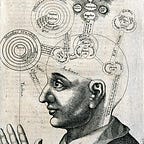Death by 1000 Laws.
It is hard to know the motives of a government worker behind their professional persona. No one would think, at face value, that the cute and smiley girl wearing a police uniform or the lavishly attired public administration specialist would fantasize about inflicting destitution and misery onto others.
The law, which purports to pursue and facilitate justice, does not actually explain why the formation of that law was proposed and what it is supposed to bring about. For instance, what is the just purpose of a liquor or business license? What identifiable standards does this inject into my business? What burden of responsibility does a license bestow onto the manufacturer in terms of quality control? What does social responsibility have to do with attaining a license? The seller has to build up a good reputation so that he can convince people to voluntarily exchange. A permit does not determine the quality of a product. If it did, then only the large companies would be able to “reputably” sell alcohol due to qualitative abundance of their resources. This is because the standards, as written in the permit, would be set at a scale which could deliberately phase out small manufactures if the larger companies lobbied the legislators to reduce competition under the guise of quality control.
In British Columbia, the Liquor License Act clearly states:
“Unlawful sale and purchase of liquor
8 (1)In subsection (2), “liquor” includes ethyl alcohol.
(2)Except as provided under this Act or the Liquor Distribution Act, a person must not, personally or otherwise,
(a)keep liquor for sale or sell liquor,
(b)solicit, receive or take orders for the sale or purchase of liquor, or act as agent for its sale or purchase,
©manufacture liquor,
(d)operate a facility that provides goods or services to a person manufacturing wine or beer in the facility for consumption by the person or for consumption at no charge by other persons, or
(e)purchase or, in consideration of the sale or transfer of property or for other consideration, take liquor from another person.
(3)A licensee or permittee must not sell or serve liquor except
(a)liquor purchased by the licensee or permittee from the Liquor Distribution Branch,
(b)liquor purchased or acquired by the licensee or permittee in prescribed circumstances or on prescribed conditions, or
©liquor purchased by the licensee or permittee as authorized by the terms and conditions of the licensee’s license or of the permittee’s permit.”
According to BC alcohol law, the apparently “sacred” permit bestows onto the seller a qualification of good faith. It does not determine his skill level as a brewer or his character as a salesman, it simply designates him as a licensed provider but not a credible provider. The market determines credibility whereas the police determine validity as they anxiously toy with their handcuffs in anticipation of an arrest.
It is true that many laws are conceived as ways of controlling the market and, by extension, a persons autonomy due to them not be able to preform the activities required to produce a prohibited item. If the item cannot be prohibited outright, than a scheme of taxation will be imposed upon them in order to phase their business out. Laws give clothes to the ill-legitimate whose natural state is nakedness which is a symbol of their irrelevance.
Theoretically speaking, if the Ministry of Health were to have a one sided authority in determining what caused a epidemic or natural disaster X, they could install a prohibition tomorrow by revoking everyone’s liquor license to in order to close their business. The liquor license data base would be used as a tool to locate businesses and close them down without discourse. As seen with the current Coronavirus “emergency” legislation, these ministers of hellfire would not be required to suspend the constitution as they only require brute force via the police. Brute force is refuge for fiends.
If such a licensing scheme can impose such immense destruction, imagine would could occur if the entire market were regulated as stringently. It would cause the death of businesses, careers and people. It would be death by 1000 laws.
When unjustified laws go unchallenged, more unjust laws follow. A soft dictatorship is attained when incoherent laws are allowed to accumulate to the point where market efficiency is handicapped and our quality of life suffers. If, for instance, sawmills were considered(by law)to be immense polluters without any consequential evidence to verify that truth claim, than the entire supply chain would be disturbed as there is no such thing as an autonomous supply chain. The entire supply chain is one due to all the resources(inputs and outputs) that are required for each product(i.e. pencil, toothbrush, computer, cell phone, desk, contact lenses, etc). All these items are multifaceted in nature and thus require resources from many different industries in order for them to be formed.
In an essay titled “I, Pencil” by Leonard Read he writes about all the millwork, machinery, logging, mining and all the other skills that go into the formation of a single pencil. He makes the point that the making of such a seemingly simple utensil is highly interdisciplinary and thus cohesive for the purposes of making a tool whose essence contains many properties to create on singular device. If one manufacturing, truck driving or logging company fails to deliver the raw materials, then the supply chain crumbles. Hence why unjustified laws(especially environmental tax laws and regulations) are challenged ferociously to ensure the efficiency of the free market for the welfare of all.
If we fail to this, it will be as I have already said:
DEATH BY 1000 LAWS.
